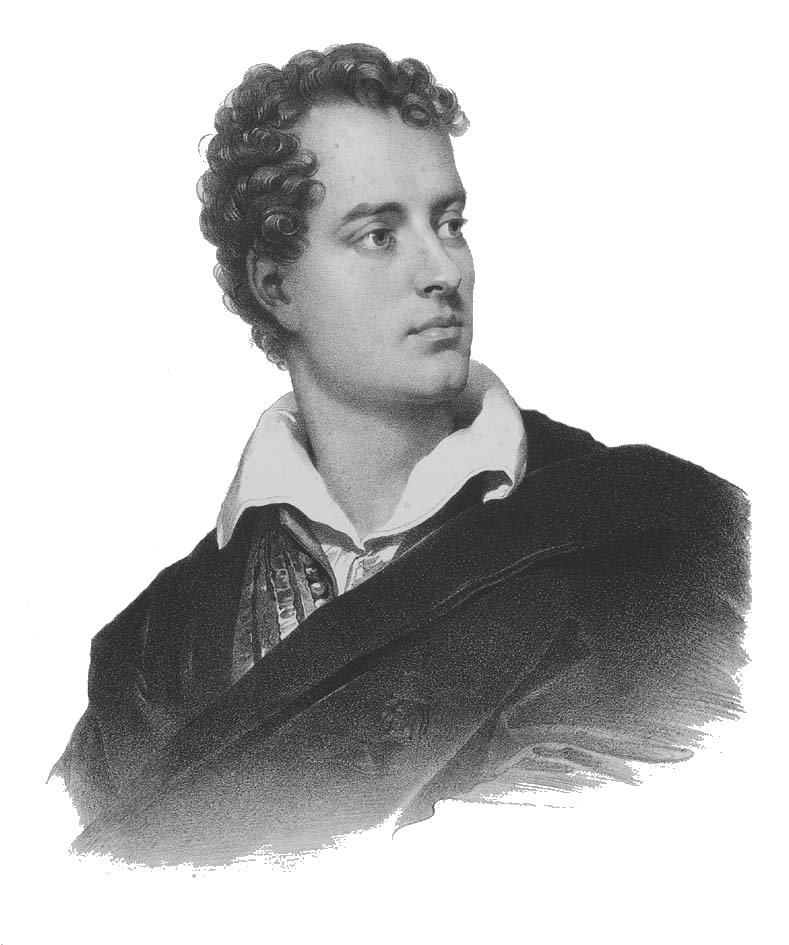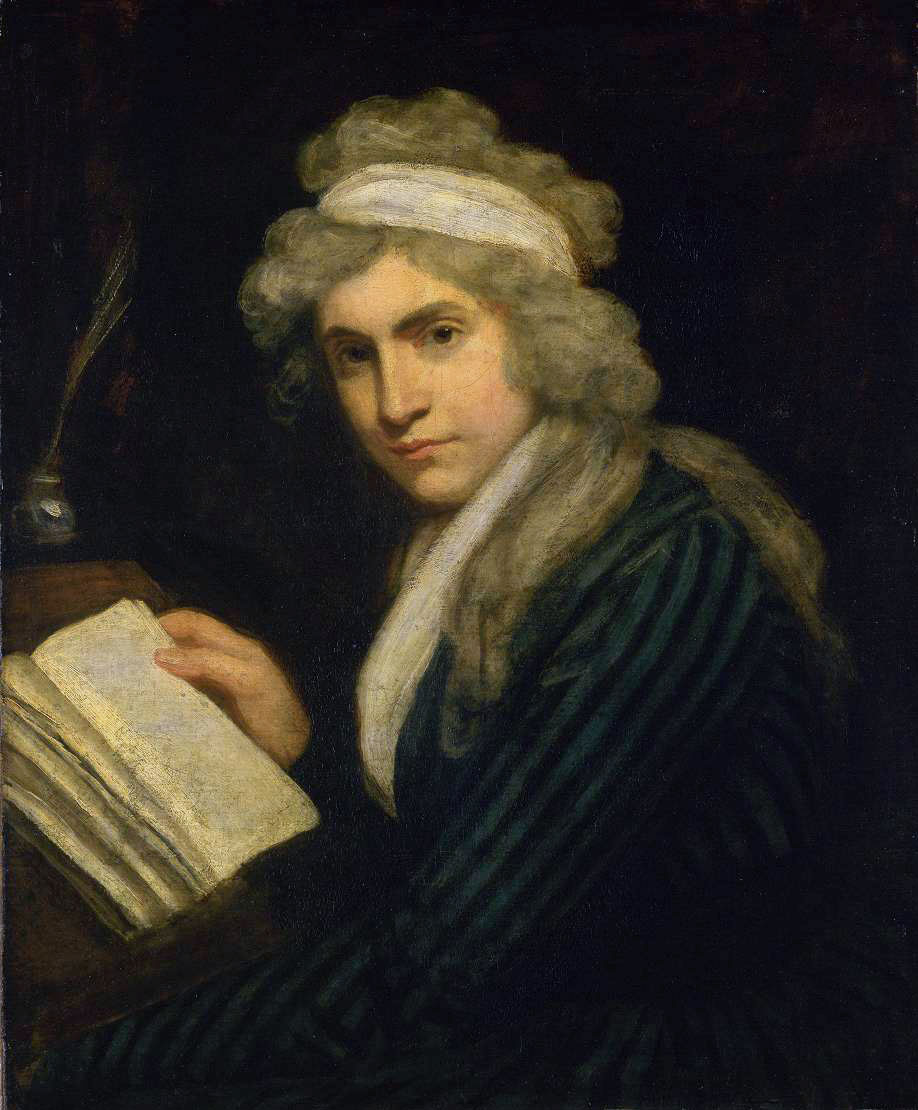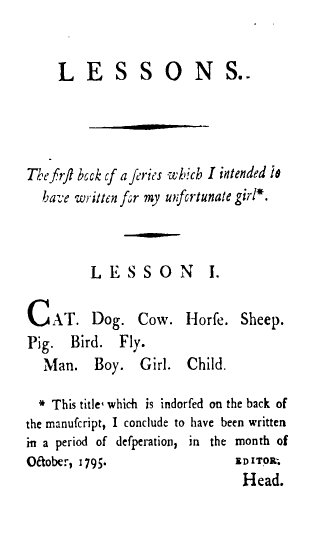|
Claire Clairmont
Clara Mary Jane Clairmont (27 April 1798 – 19 March 1879), or Claire Clairmont as she was commonly known, was the stepsister of English writer Mary Shelley and the mother of Lord Byron's daughter Allegra. She is thought to be the subject of a poem by Percy Bysshe Shelley. Early life Clairmont was born in 1798 in Brislington, near Bristol, England, the second child and only daughter of Mary Jane Vial Clairmont. Throughout her childhood, she was known as Jane. In 2010 the identity of her father was discovered to be John Lethbridge (1746–1815, after 1804 Sir John Lethbridge, 1st Baronet) of Sandhill Park, near Taunton in Somerset. Her mother had identified him as a "Charles Clairmont", adopting the name Clairmont for herself and her children to disguise their illegitimacy. It appears that the father of her first child, Charles, was Charles Abram Marc Gaulis, "a merchant and member of a prominent Swiss family, whom she met in Cadiz". In December 1801, when Clairmont was thr ... [...More Info...] [...Related Items...] OR: [Wikipedia] [Google] [Baidu] |
Amelia Curran (painter)
Amelia Curran (1775 – 1847) was an Irish portrait painter. Biography Amelia Curran was the eldest child of the barrister and wit John Philpot Curran and his wife Sarah Creagh. Her sister Sarah Curran was the fiancée of Robert Emmet. Amelia was a member of the Church of Ireland for the early part of her life. In 1810, through her father, she met novelist William Godwin and Aaron Burr, the American politician. Soon after, she met her lifelong friend, Percy Bysshe Shelley. In 1812 Percy Shelley traveled to Ireland to campaign against the injustices done there under British rule and was introduced to her father. Curran also painted a portrait of Shelley's three-and-a-half-year-old son William (called "Willmouse") in Rome, just before Willmouse's death from malaria in 1819. She later traveled to Rome and built up a close friendship and correspondence with Shelley's second wife Mary Shelley. [...More Info...] [...Related Items...] OR: [Wikipedia] [Google] [Baidu] |
Taunton
Taunton () is the county town of Somerset, England. It is a market town and has a Minster (church), minster church. Its population in 2011 was 64,621. Its thousand-year history includes a 10th-century priory, monastic foundation, owned by the Bishop of Winchester, Bishops of Winchester, which was rebuilt as Taunton Castle by the Normans in the 12th century. Parts of the inner ward house were turned into the Museum of Somerset and Somerset Military Museum. For the Second Cornish uprising of 1497, Perkin Warbeck brought an army of 6,000; most surrendered to Henry VII on 4 October 1497. On 20 June 1685, the James Scott, 1st Duke of Monmouth, Duke of Monmouth crowned himself King of England in Taunton in the failed Monmouth Rebellion. Judge Jeffreys led the Bloody Assizes in the Castle's Great Hall. The Grand Western Canal reached Taunton in 1839 and the Bristol and Exeter Railway in 1842. Today it hosts Musgrove Park Hospital, Somerset County Cricket Club, is the base of 40 Comma ... [...More Info...] [...Related Items...] OR: [Wikipedia] [Google] [Baidu] |
Theatre Royal, Drury Lane
The Theatre Royal, Drury Lane, commonly known as Drury Lane, is a West End theatre and listed building, Grade I listed building in Covent Garden, London, England. The building faces Catherine Street (earlier named Bridges or Brydges Street) and backs onto Drury Lane. The present building, opened in 1812, is the most recent of four theatres that stood at the location since 1663, making it the oldest theatre site in London still in use. According to the author Peter Thomson, for its first two centuries, Drury Lane could "reasonably have claimed to be London's leading theatre". For most of that time, it was one of a handful of patent theatres, granted monopoly rights to the production of Legitimate theater, "legitimate" drama English drama, in London (meaning spoken plays, rather than opera, dance, concerts, or plays with music). The first theatre on the site was built at the behest of Thomas Killigrew in the early 1660s, when theatres were allowed to reopen during the Stuart Rest ... [...More Info...] [...Related Items...] OR: [Wikipedia] [Google] [Baidu] |
Year Without A Summer
The year 1816 is known as the Year Without a Summer because of severe climate abnormalities that caused average global temperatures to decrease by . Summer temperatures in Europe were the coldest of any on record between 1766 and 2000, resulting in crop failures and major food shortages across the Northern Hemisphere. Evidence suggests that the anomaly was predominantly a volcanic winter event caused by the massive 1815 eruption of Mount Tambora in April in modern-day Indonesia (commonly referred to as the Dutch East Indies at the time). This eruption was the largest in at least 1,300 years (after the hypothesized eruption causing the volcanic winter of 536); its effect on the climate may have been exacerbated by the 1814 eruption of Mayon in the Philippines. The significant amount of volcanic ash and gases released into the atmosphere blocked sunlight, leading to global cooling. Countries such as the United Kingdom and France experienced significant hardship, with food riot ... [...More Info...] [...Related Items...] OR: [Wikipedia] [Google] [Baidu] |
King Lear
''The Tragedy of King Lear'', often shortened to ''King Lear'', is a Shakespearean tragedy, tragedy written by William Shakespeare. It is loosely based on the mythological Leir of Britain. King Lear, in preparation for his old age, divides his power and land between his daughters Goneril and Regan (King Lear), Regan, who pay homage to gain favour, feigning love. The King's third daughter, Cordelia (King Lear), Cordelia, is offered a third of his kingdom also, but refuses to be insincere in her praise and affection. She instead offers the respect of a daughter and is disowned by Lear who seeks flattery. Regan and Goneril subsequently break promises to host Lear and his entourage, so he opts to become homeless and destitute, and goes insane. The French King married to Cordelia then invades Britain to restore order and Lear's rule. In a subplot, Edmund, the illegitimate son of the Earl of Gloucester, betrays his brother and father. Tragically, Lear, Cordelia and several other main ... [...More Info...] [...Related Items...] OR: [Wikipedia] [Google] [Baidu] |
Jean-Jacques Rousseau
Jean-Jacques Rousseau (, ; ; 28 June 1712 – 2 July 1778) was a Republic of Geneva, Genevan philosopher (''philosophes, philosophe''), writer, and composer. His political philosophy influenced the progress of the Age of Enlightenment throughout Europe, as well as aspects of the French Revolution and the development of modern political, economic, and educational thought. His ''Discourse on Inequality'', which argues that private property is the source of inequality, and ''The Social Contract'', which outlines the basis for a legitimate political order, are cornerstones in modern political and social thought. Rousseau's sentimental novel ''Julie, or the New Heloise'' (1761) was important to the development of preromanticism and romanticism in fiction. His ''Emile, or On Education'' (1762) is an educational treatise on the place of the individual in society. Rousseau's autobiographical writings—the posthumously published ''Confessions (Rousseau), Confessions'' (completed in 17 ... [...More Info...] [...Related Items...] OR: [Wikipedia] [Google] [Baidu] |
Calais
Calais ( , , traditionally , ) is a French port city in the Pas-de-Calais department, of which it is a subprefecture. Calais is the largest city in Pas-de-Calais. The population of the city proper is 67,544; that of the urban area is 144,625 (2020). and it is reflected in the city's name in the local Picard language, ''Calés''. Other archaic names for the city are Portuguese ''Calêsio'' and German ''Kalen''. ''Kales'', the city's historic name in Dutch and West Flemish (once spoken in the area) was retained until more recently in the name for the Strait of Dover, ''Nauw van Kales'', and is still used in Dutch sources wishing to emphasise former linguistic ties to the area. Though the modern French spelling of ''Calais'' gradually supplanted other variants in English, the pronunciation () persisted and survives in other towns named for the European city including Calais, Maine, and Calais, Vermont, in the United States. In " De Gustibus" (1855), Robert Browning r ... [...More Info...] [...Related Items...] OR: [Wikipedia] [Google] [Baidu] |
Free Love
Free love is a social movement that accepts all forms of love. The movement's initial goal was to separate the State (polity), state from sexual and romantic matters such as marriage, birth control, and adultery. It stated that such issues were the concern of the people involved and no one else. The movement began during the 19th century and was advanced by hippies during the 1960s and early 70s. The free love movement promoted the idea that consensual sexual and emotional relationships between adults should be free from state and religious interference, emphasizing Civil liberties, personal freedom, sexual autonomy, and Women's rights, women’s rights. While intertwined with feminism and advocating for radical social change, the movement was often dominated by male voices and criticized for failing to significantly alter mainstream gender norms. Throughout history, various utopian and radical movements have embraced the concept of free love as a challenge to conventional ma ... [...More Info...] [...Related Items...] OR: [Wikipedia] [Google] [Baidu] |
Brunette
Brown hair, also referred to as brunette (when female), is the second-most common human hair color, after black hair. It varies from light brown to dark hair. It is characterized by higher levels of the dark pigment eumelanin and lower levels of the pale pigment pheomelanin. Brown hair is common among populations in the Western world, especially among those from Northwestern Europe and the United States, as well as populations in Central Europe, Southeastern Europe, Eastern Europe, Southern Europe, Southern Cone, Brazil, Colombia, Costa Rica, Puerto Rico, and also some populations in the Middle East, Central Asia where it transitions smoothly into black hair.Frost, Peter"Why Do Europeans Have So Many Hair and Eye Colors?"(summarizing Frost, P. 2006. European hair and eye color - A case of frequency-dependent sexual selection? Evolution and Human Behavior 27:85-103) Additionally, brown hair is common among Australian Aboriginals and Melanesians. Etymology and grammar The te ... [...More Info...] [...Related Items...] OR: [Wikipedia] [Google] [Baidu] |
Anarchist
Anarchism is a political philosophy and Political movement, movement that seeks to abolish all institutions that perpetuate authority, coercion, or Social hierarchy, hierarchy, primarily targeting the state (polity), state and capitalism. Anarchism advocates for the replacement of the state with Stateless society, stateless societies and voluntary Free association (communism and anarchism), free associations. A historically left-wing movement, anarchism is usually described as the libertarian wing of the socialist movement (libertarian socialism). Although traces of anarchist ideas are found all throughout history, modern anarchism emerged from the Age of Enlightenment, Enlightenment. During the latter half of the 19th and the first decades of the 20th century, the anarchist movement flourished in most parts of the world and had a significant role in Labour movement, workers' struggles for emancipation. #Schools of thought, Various anarchist schools of thought formed during ... [...More Info...] [...Related Items...] OR: [Wikipedia] [Google] [Baidu] |
Mary Wollstonecraft
Mary Wollstonecraft ( , ; 27 April 175910 September 1797) was an English writer and philosopher best known for her advocacy of women's rights. Until the late 20th century, Wollstonecraft's life, which encompassed several unconventional (at the time) personal relationships, received more attention than her writing. Wollstonecraft is regarded as one of the founding feminist philosophers, and feminists often cite both her life and her works as important influences. During her brief career she wrote novels, treatises, a travel narrative, a history of the French Revolution, a conduct book, and a children's book. Wollstonecraft is best known for ''A Vindication of the Rights of Woman'' (1792), in which she argues that women are not naturally inferior to men but appeared to be only because they lack education. She suggests that both men and women should be treated as rational beings and imagines a social order founded on reason. After two ill-fated affairs, with Henry Fuseli a ... [...More Info...] [...Related Items...] OR: [Wikipedia] [Google] [Baidu] |
Fanny Imlay
Frances Imlay (14 May 1794 – 9 October 1816), also known as Fanny Godwin and Frances Wollstonecraft, was the daughter of the British feminist Mary Wollstonecraft and the American commercial speculator and diplomat Gilbert Imlay. Wollstonecraft wrote about her frequently in her later works. Fanny grew up in the household of anarchist political philosopher William Godwin, the widower of her mother, with his second wife Mary Jane Clairmont and their combined family of five children. Fanny's half-sister Mary grew up to write ''Frankenstein'' and married Percy Bysshe Shelley, a leading Romantic poet, who composed a poem on Fanny's death. Although Gilbert Imlay and Mary Wollstonecraft lived together happily for brief periods before and after the birth of Fanny, he left Wollstonecraft in France in the midst of the Revolution. In an attempt to revive their relationship, Wollstonecraft travelled to Scandinavia on business for him, taking the one-year-old Fanny with her, but the ... [...More Info...] [...Related Items...] OR: [Wikipedia] [Google] [Baidu] |










